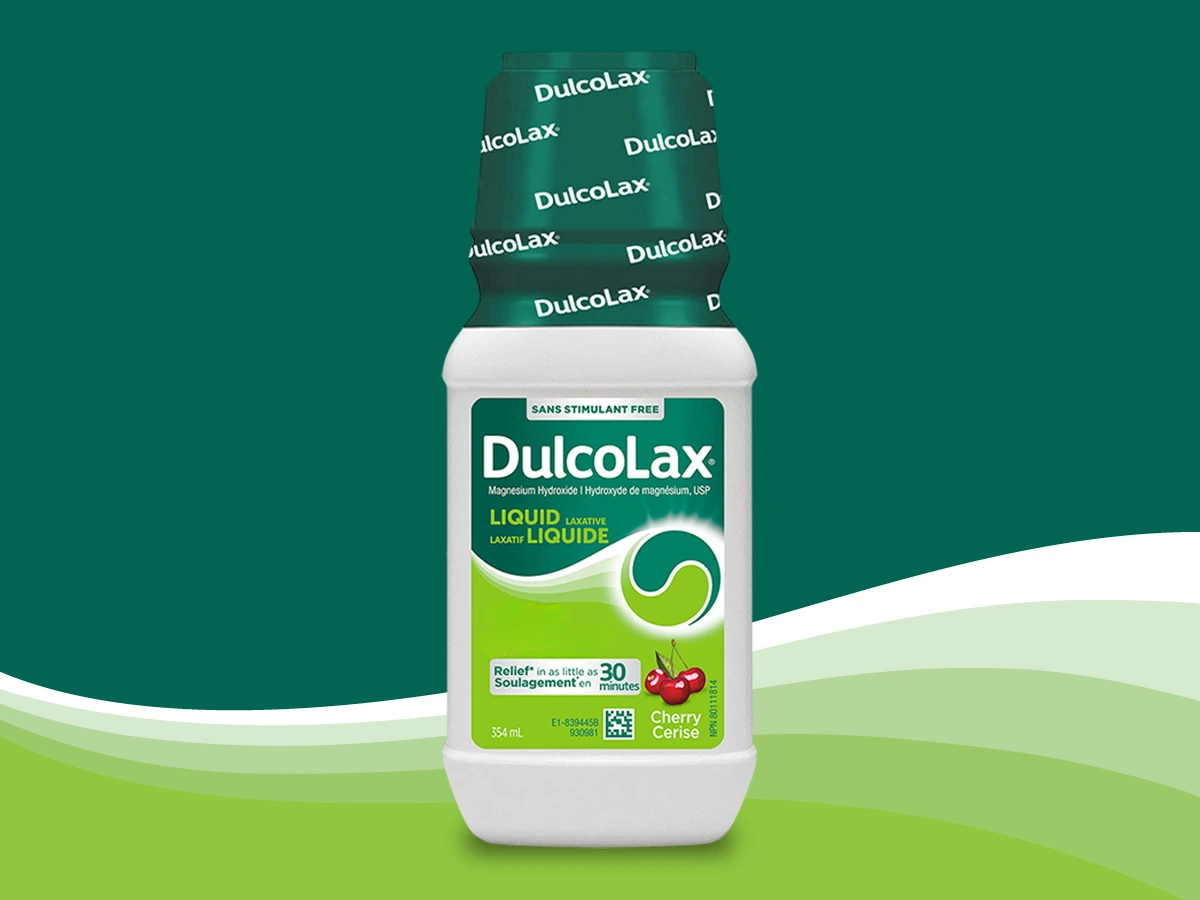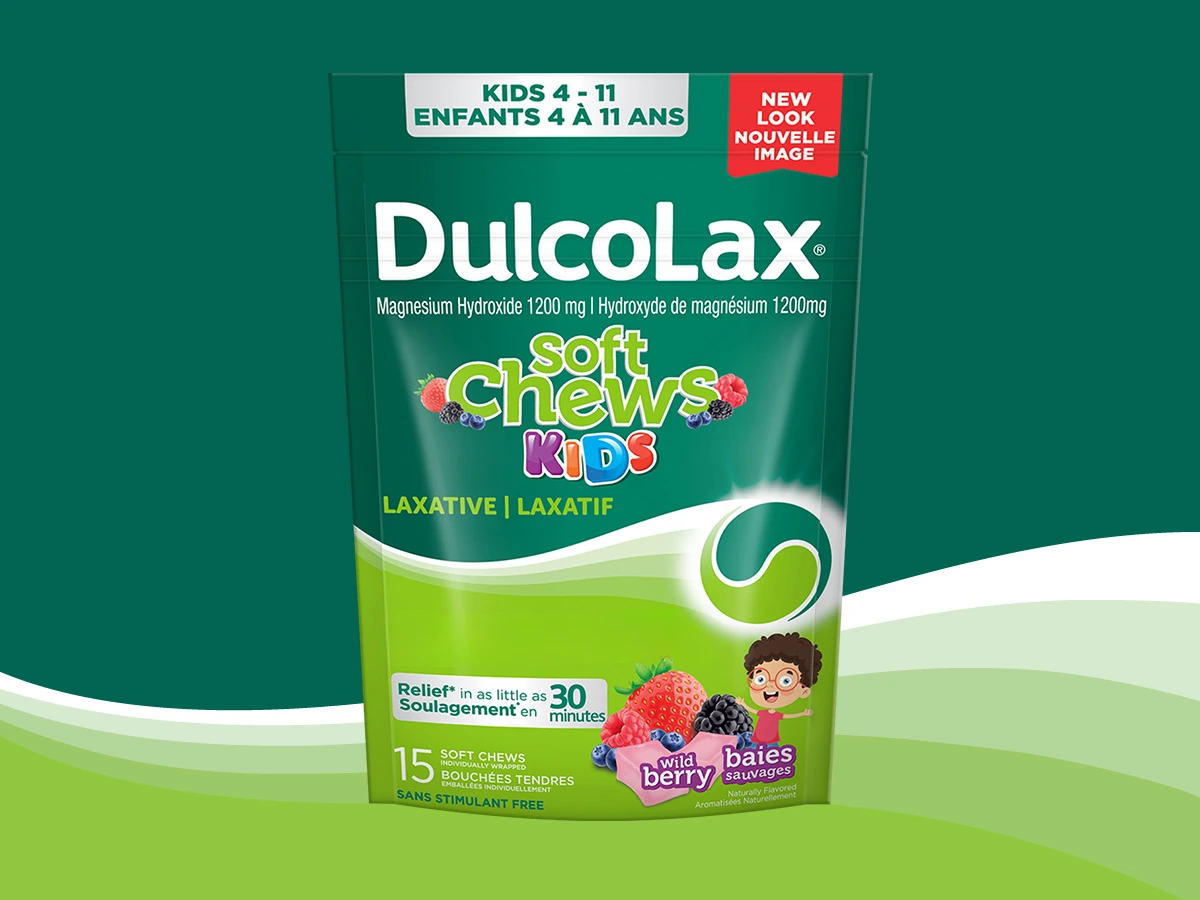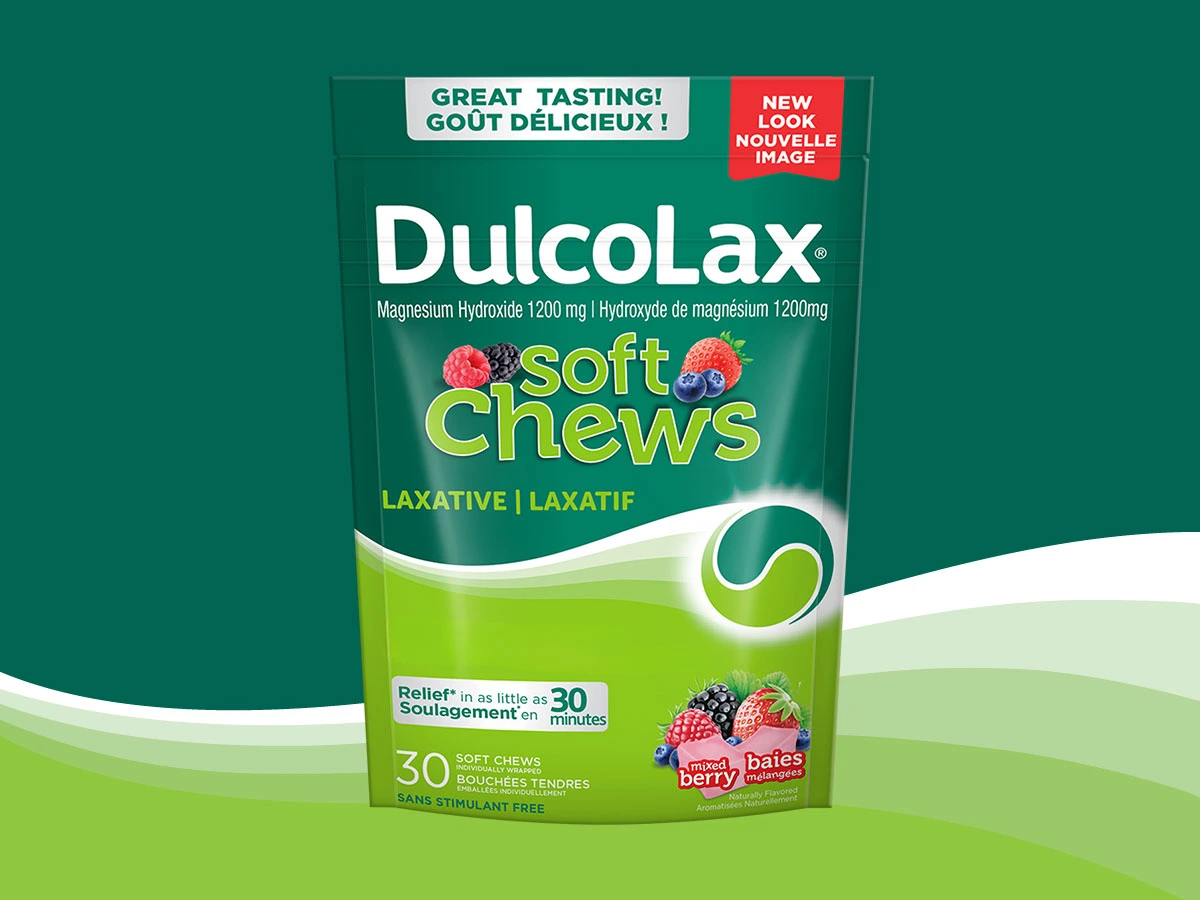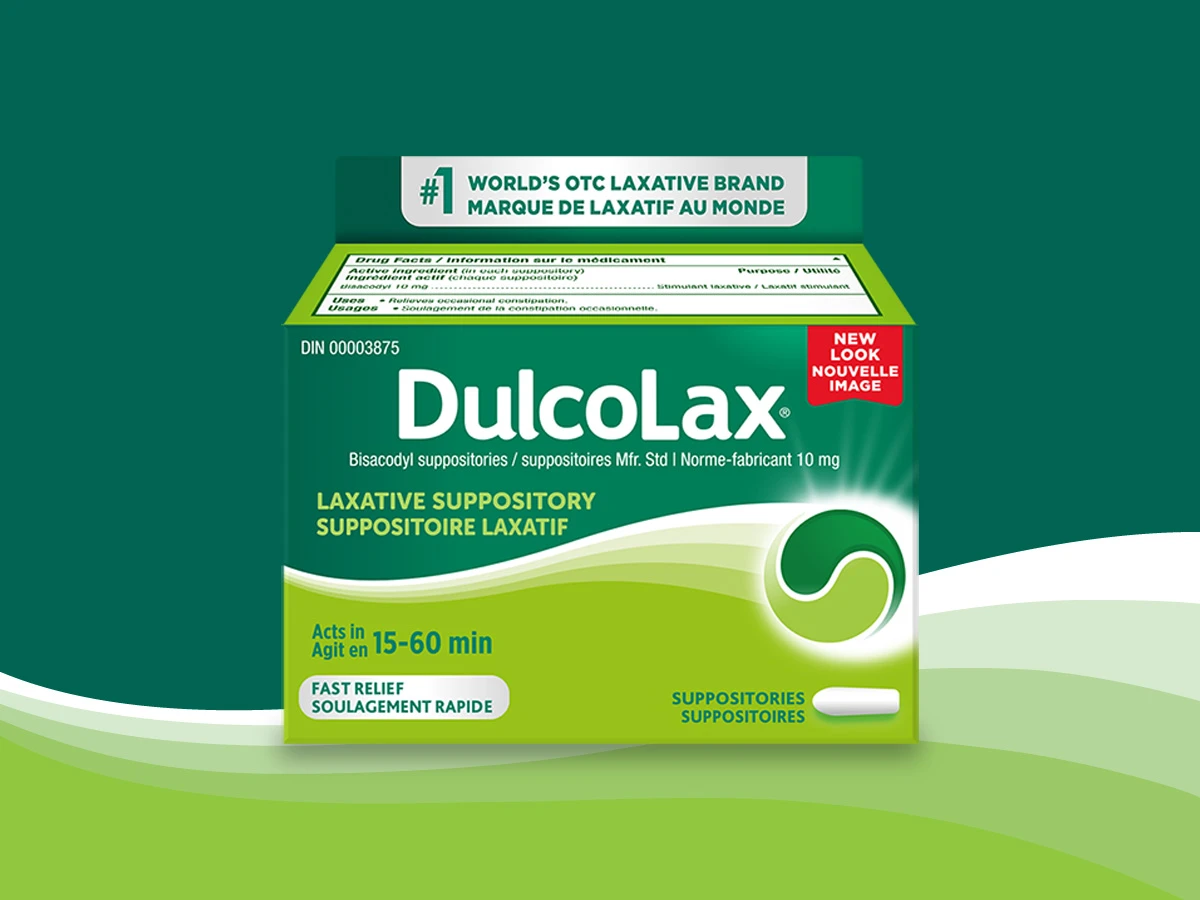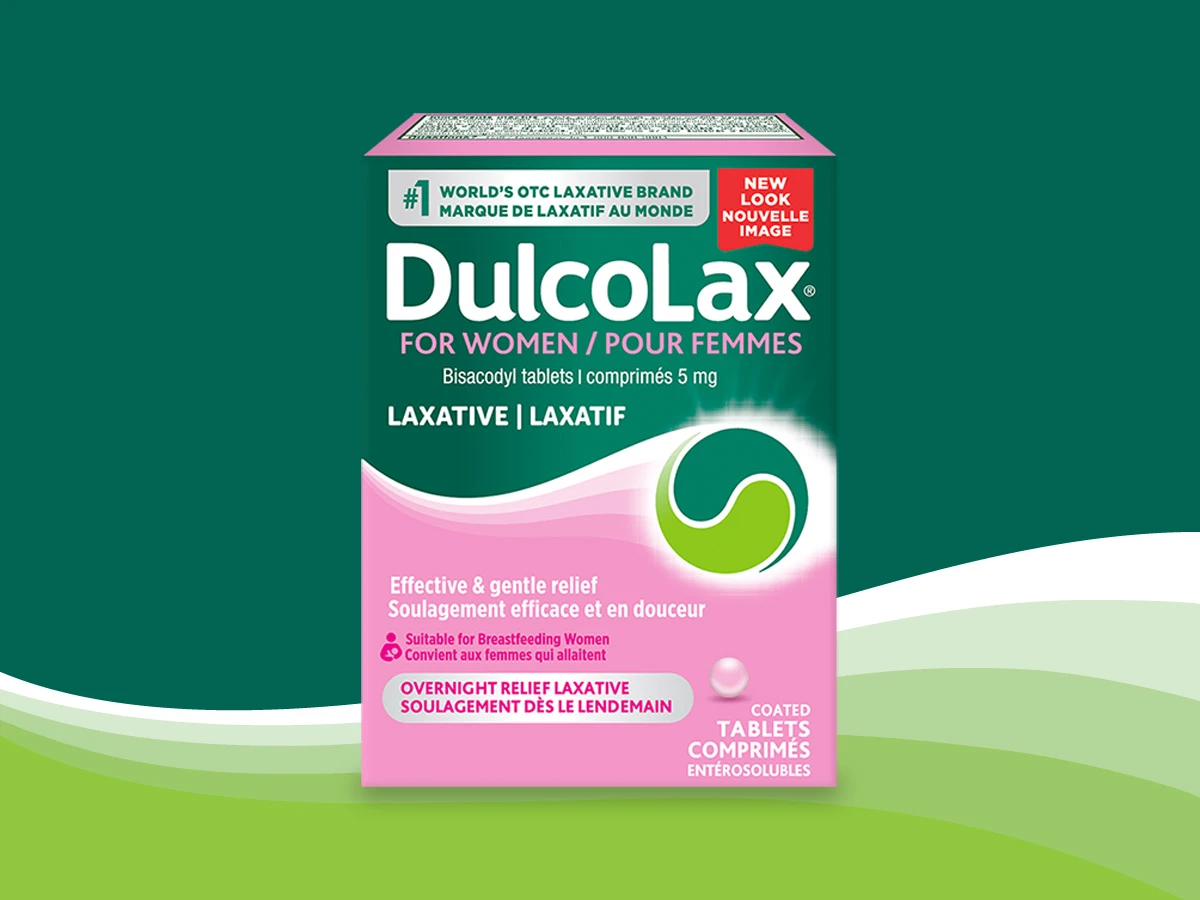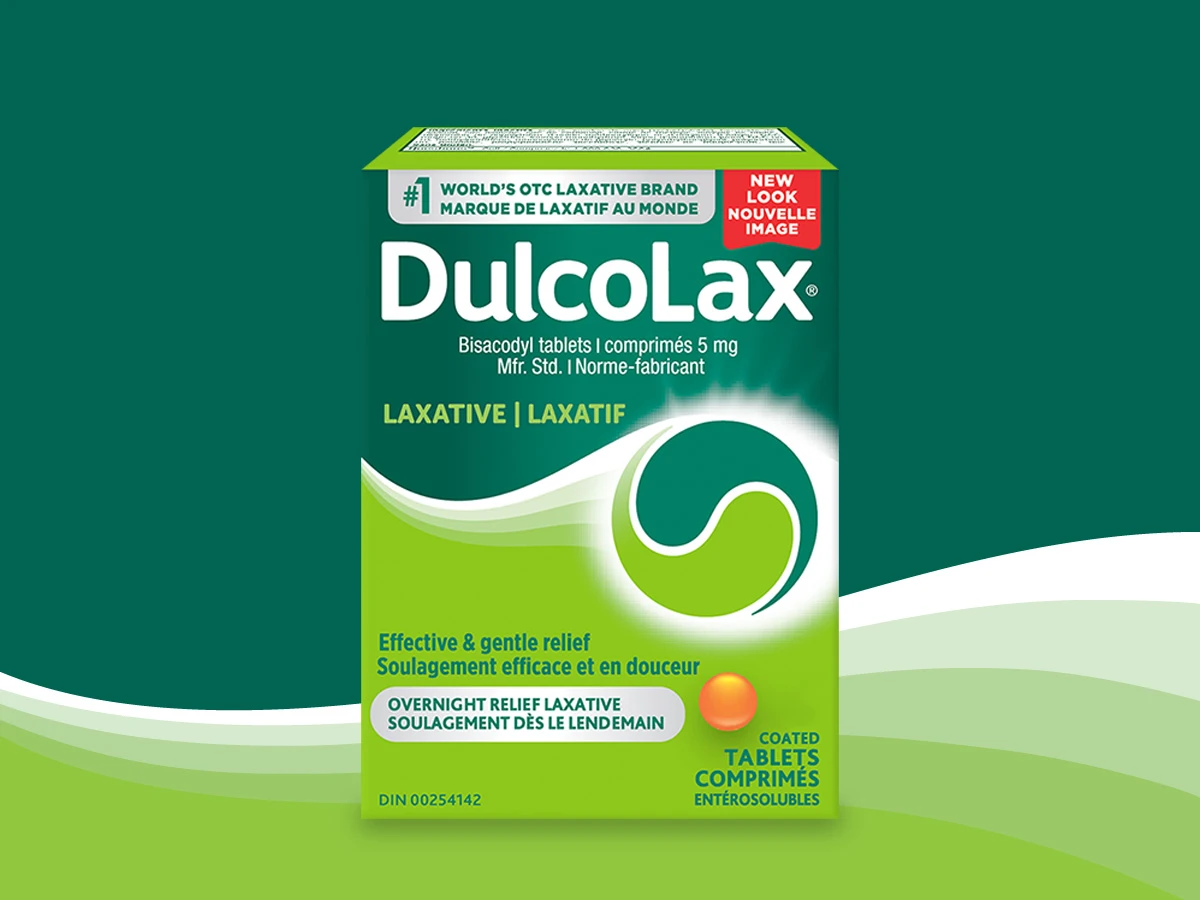Occasional constipation: definition
Occasional constipation is characterized by difficult or infrequent bowel movements. Generally speaking, passing fewer than 3 stools per week, not going to the bathroom as often as usual, or straining because your stool is too dry and hard to pass, may mean you’re experiencing constipation.
If you experience constipation for more than one week or notice a sudden change in your bowel habits, please talk to a healthcare professional.
How your digestive system works
Your digestive system is a complex group of organs that work together to transform food into energy and nutrients, as your body relies on those nutrients to stay healthy. Proteins, fats, carbohydrates, vitamins, minerals, and water make up those nutrients. Your digestive system breaks these down into parts small enough for your body to absorb and use for energy, growth, and cell repair. Your large intestine absorbs water, and the waste products of digestion become stool. Nerves and hormones help control the digestive process.
The digestive process starts in your mouth when you chew as you mechanically break down your food. Your salivary glands make saliva which moistens food to help it move easily through your esophagus and into your stomach. Saliva also contains an enzyme that begins to break down starches in your food.
Once you swallow your food, it makes its way down to your stomach through the esophagus. With the help of the digestive juices from your stomach and the pancreas, the carbohydrates, proteins and fats are broken down into simple nutrients. They will then pass through the small intestine, where the process of breaking it down into smaller part continues. The walls of the small intestine absorb water and the digested nutrients into the bloodstream. Non-absorbed waste products of the digestive process move into the large intestine.
The last stage of digestion takes place in the large intestine (also called the colon). Bacteria in your large intestine help break down remaining nutrients and make vitamin K (a nutrient that your body needs to stay healthy). Water is being continuously absorbed through the large intestine. Waste products of digestion, including parts of food that are still too large, become stool.
In conclusion, constipation is the result of the colon absorbing too much water. When the colon's muscle contractions are too slow, the stool doesn’t move through the colon quick enough, resulting in too much water being absorbed. This can occur when the waste in the rectum is too dry to trigger the ejection reflex or contractions of the colon are too weak to drive the stool out of your body.
Frequently asked questions
Let’s talk about constipation
-
Primary constipation
Primary constipation is the most common type of constipation. It is characterized by difficult, infrequent, and/or incomplete emptying without any clear cause or identified underlying illness.Secondary constipation
This type of constipation is associated with factors impacting your body’s regularity. Numerous common medical conditions may affect the muscles or the nerves used for normal bowel movements and can be the cause of constipation, for example, diabetes, Parkinson's disease, low thyroid hormone levels, depression, lack of potassium, too much calcium, lack of magnesium, medications.Acute versus chronic constipation
It is important to distinguish between acute (days to weeks) or chronic (months to years) constipation because this information in the context of accompanied symptoms can help your physicians discover the cause of your constipation. -
Constipation can cause complications that can interfere with your quality of life. They may include:
- Swollen veins in your anus (hemorrhoids). Straining to have a bowel movement may cause swelling in the veins in and around your anus.
- Torn skin in your anus (anal fissure). A large or hard stool can cause tiny tears in the anus.
- Stool that can't be expelled (fecal impaction). Constipation may cause an accumulation of hardened stool that gets stuck in your intestines. This is a serious condition that requires urgent care from a doctor.
- Intestine that protrudes from the anus (rectal prolapse). Straining to have a bowel movement can cause a small amount of the rectum to stretch and protrude from the anus.
DulcoLax® family of products
DulcoLax® products help your digestive system get moving with gentle overnight or fast relief solutions. Find the DulcoLax® product that’s right for you.
Stay informed
Occasional constipation is a common condition with a wide range of possible causes. We know how unpredictable and frustrating constipation can be, so we are here to help identify the possible causes and teach you how to address them.
- Canadian Digestive Health Foundation. Understanding the Prevalence and Impact of Constipation in Canada A Special Report from the CDHF. February 2014
- Mayo Clinic. Slide show: See how your digestive system works. January 3rd, 2020. Available at: https://www.mayoclinic.org/digestive-system/sls-20076373?s=1
- National Institute of Health. National Institute of Diabetes and Digestive and Kidney Diseases. Your Digestive System & How It Works. December 2017. Available at: https://www.niddk.nih.gov/health-information/digestive-diseases/digestive-system-how-it-works
- Zawn Villines. Medically reviewed by Cynthia Taylor Chavoustie, MPAS, PA-C. Medical News Today. What to know about different types of constipation. February 26th ,2020. Available at: https://www.medicalnewstoday.com/articles/types-of-constipation#primary
%20(1).webp)
